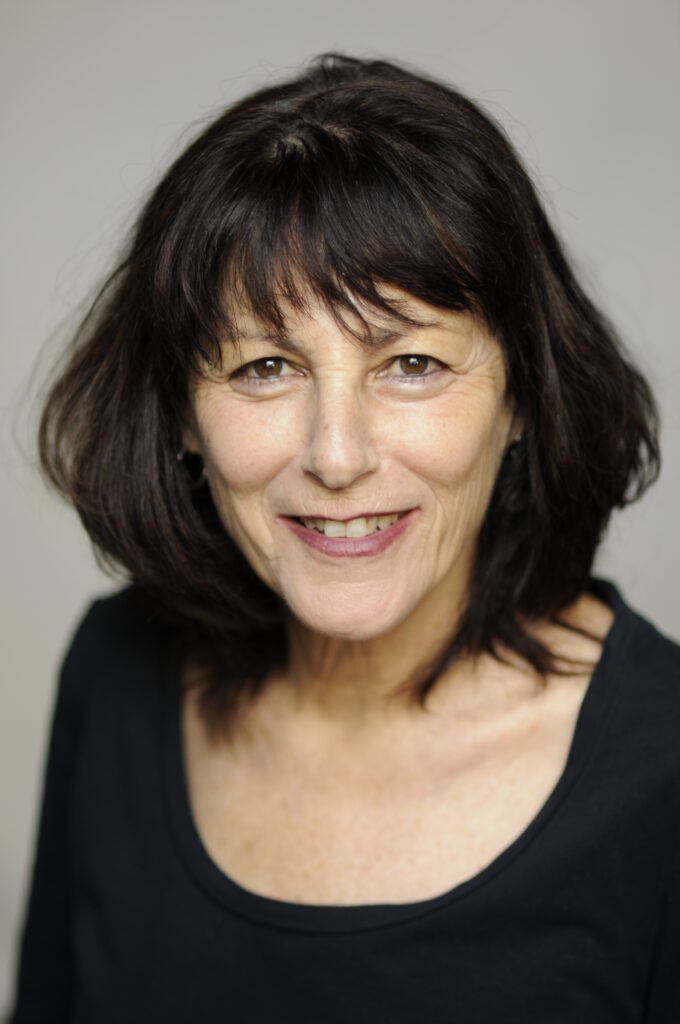Summer reading: Slow Reveal by Melanie Mitzner
Set in 1990s New York, Slow Reveal paints an extraordinary portrait of artists who defy the arbiters of culture and challenge social norms.
Art, addiction, and family dynamics capsize the Kanes when they discover the parallel life of Katharine, film editor, mother, lover, and wife.
“A poem is never finished, only abandoned,” wrote Paul Valéry, an outcome echoed in her decade-long affair with Naomi, a lesbian poet. Katharine’s marriage to Jonathan collapses in his struggle with sobriety when he’s ostracized for politicizing art and abandons his career for advertising. Faced with confrontations from her two grown daughters, an installation artist and an aspiring writer, Katharine hangs onto her former life. When unforeseen tragedy strikes, devotion and commitment are not the guardrails that keep their work or relationships on track but rather a form of entrapment.

A captivating story about relevance at the end of the 20th century, the novel questions the voracious demands of contemporary society through a riveting portrayal of turbulent family life, impacted by art shaped by the media and influenced by social and political injustice. Success is redefined by the courage to embark on the artistic process, as risky, messy and unpredictable as building intimacy and trust in love.
Enjoy this excerpt from Slow Reveal by Melanie Mitzner.
As our world contracts through nationalism, narcissism and self-righteousness, burdened by a pandemic, the inequality and political turmoil is echoed in the nuclear family at risk. While Slow Reveal is set in the 90s, the 2021 alternate universe perceived as truth reflects how we deceive ourselves and sabotage what we love most. In Slow Reveal by Melanie Mitzner takes a deep dive into the personal lives of the characters reveals the tenuousness of the nuclear family that vacillates between connection and alienation, always the outsider. Family dysfunction is a central theme in all of Melanie’s work. The opposing need to liberate oneself from the psychological entrapment of family history while yearning for more intimate relationships with your parents and siblings always drives her narratives. In Slow Reveal Melanie wanted to reflect on how this conundrum is further complicated for the LGBTQ community and how the struggle one encounters with art, a messy, risky, unpredictable process mired in self-doubt, mirrors the interpersonal struggle for intimacy and love.
Please enjoy the following excerpt from Slow Reveal.
Six months behind the scheduled release date, the completion funds came through. Tired of all the endless debates about family, love, her future, she welcomed the opportunity to lose herself in her work, to exercise her atrophied intellect instead of dragging around emotional baggage from one encounter to the next. A few days away from audio sweetening Katharine made the last cuts. Plagued by insomnia, she worked the night shift. Although she made mistakes of the kind she’d never make under normal circumstances, she experienced a heightened sense of mutability that allowed her to drastically change course. Like the scene of the highest jump, Devil’s Dive. As the diver breaks through stratocumulus clouds that blow in precipitously beneath the aircraft, the white out transitions to a stock image of a hawk swooping down to nail its prey. Blasting through the fog, moments before her parachute opens, the colors are radiant. The blues indigo, the greens a luminous emerald as the roundness of the earth comes into view. In the perilous act, the skydiver is both predator and prey, endangering herself, her own life in jeopardy. Realizing what she did in the subconscious act of editing the film, there was no escaping the fact that her inability to break from Jonathan had been a form of self-sabotage.
From the valet box on her dresser, Naomi found the studs for the cuffs of her starched black shirt. The macabre image of funerals as weekly tributes came back full force. She’d been to too many over the years for friends and artists who died of cancer and AIDS. Death, unlike life, had become a close friend. Intimate, dependable, remarkable in ways, someone she could trust, someone who reliably showed up only after a brief absence and never lacked enthusiasm for her own personal struggle.
“This,” she said, dangling the leather harness she used to seduce Katharine, “is completely inappropriate, therefore I will wear it fully accessorized.” Her somber mood was broken by this crazy gesture. The inanity of it all… She imagined cutting through the crowd of mourners yelling, “Thou art art!” pointing to the urn of Jonathan’s ashes. Cruel and unbecoming, yes, but honest. Why weren’t people honest anymore? Have lies been told so often they appeared absolute and irrefutable?
She dropped the briefs she planned to wear, walked out into the living room sporting her harness and over to the window where she pulled up the shades and yelled, “Cocks and crows be damned. I stand before thee naked. A man, a woman, a monster.” And she cackled and crowed maddeningly before whisking a bottle off the cabinet, lifting the cork and guzzling it down then spraying her woolen rug with a shower of ruby wine, rubbing it in for good measure with the heel of her bare foot. Sick and tired of the tidy lies, she fixated on the stain. There will be no more deception between us. In Katharine’s absence she could not dispute her claim.
The act revitalized her and her dynamism returned. She acknowledged the pulsating rhythm of her sex locked up in a harness, felt the energy bound up and turned inward. She wasn’t fixed in a singular mind set about what makes a man, what makes a woman. To her, it was not the body or the genitals but the orientation of energy. An orientation that was not absolute. She had always loved women but knew that to love them truly she had to love herself. It hadn’t been easy, not because of her identity but because of her disorientation around gender, like those little icons stuck on the walls of public toilets indicating which door to use. She rarely interpreted the symbols correctly. They made no sense to her, which accounted for the way she often walked blindly into the wrong bathroom. As if there were no subtleties in the evolution of the human race… “We must define, we must confine!”
She glanced at the clock over the kitchen stove and dashed into the bedroom to dress. If she didn’t pull herself together, she’d be late for the memorial service. She wanted to be there on time even though she knew her presence would probably make things worse and she hated herself, their relationship, for that.

About the Author
Edward Albee Fellow and fiction grant recipient, Melanie Mitzner is the author of Slow Reveal published by Inanna Publications in May 2022 and a finalist in four fiction and screenwriting competitions. Her work appears in Wine Spectator, Vol1Brooklyn, Harrington Lesbian Literary Quarterly, Hamptons, The Groovy Mind blog, Society for Curious Thought, Submerging Artists, Broadcast Week and an inventor series for Video Systems. She lives with her partner, artist Nicke Gorney, in Montréal and New York.






